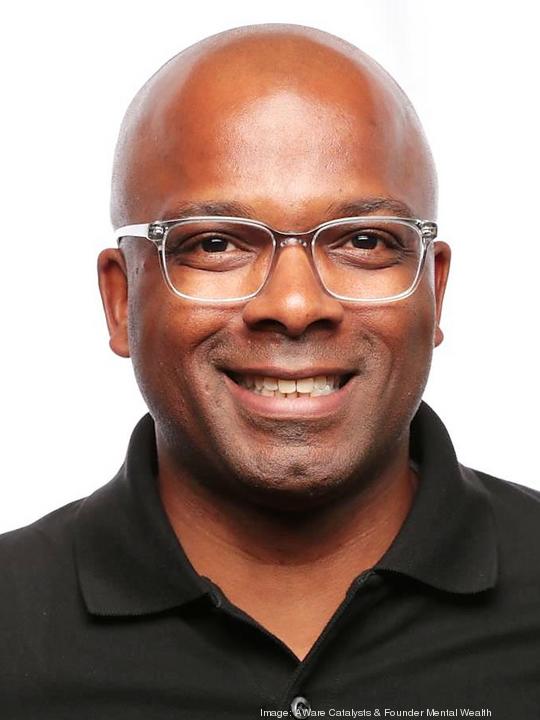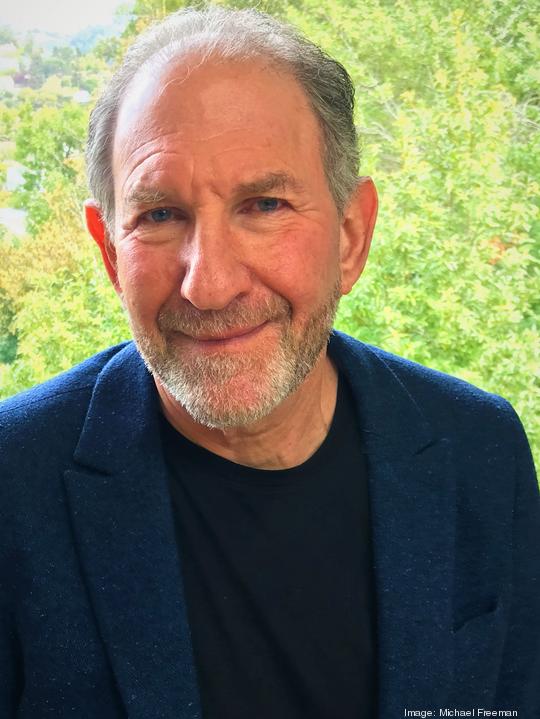Founders are used to talking about their companies. And maybe a bit about themselves, but in the narrow context of explaining how they will successfully grow their enterprises or products.
“When I saw this (interview request) come through, first of all, I thought, I talk all day long about my company, but talking about these really personal issues is kind of scary. But it’s important for all entrepreneurs,” said Kim Malek, co-founder and CEO of growing ice cream retailer Salt & Straw.
The request? To talk about founder mental health and burnout.
Entrepreneurship is a uniquely taxing career and life path. Founders decide to create something from nothing, building the proverbial airplane while flying it. It’s uncertain. It’s messy. It’s exhilarating. It takes a special type of person. It’s also the backbone of the economy.
“Most jobs, you need to be good at a couple things, and entrepreneurs need to be good at a lot of things and most things they have no training in. You are always behind and have a technical deficit,” said Michael Freeman, a University of California San Francisco psychologist who studies and works with entrepreneurs.
See also:
The pressure entrepreneurs face — compounded by societal myths surrounding startups and a glamorized hustle culture — can take a steep toll on mental health leading to burnout, breakdowns or worse. The issue was beginning to get some widespread attention prior to the pandemic. Inc and Entrepreneur magazines published stories and startup luminaries like investor Brad Feld started talking openly about depression and mental health.
Covid and the devastating toll it took on small businesses further amplified the subject.
“I’m 46. I see a difference in the way that people talk about their mental health,” said Anthony Ware, principal of AWare Catalysts & Founder Mental Wealth, who studies the mental wealth of underrepresented founders. “The pandemic has forced people to deal with the stuff we have been numbing out for generations.”

‘Perfect disaster’
In 2019, Portland entrepreneur Emma McIlroy appeared on The Anxious Achiever podcast to discuss mental health and entrepreneurship. She described entrepreneurship as the ultimate example of the unstoppable force meeting the immovable object, building something from nothing to get impossible results.
“It’s just sort of set up for a perfect disaster. And one of the disasters that falls out of it is normally your mental health,” she told host Morra Aarons-Mele.
McIlroy has struggled and watched those around her do the same. She told Aarons-Mele that three people who were part of an investment fund she was involved with had taken their own lives. All three, she said, were seemingly more successful than her as she built her apparel company Wildfang.
“That’s an interesting thing to take onboard and to absorb,” she said. “...I had pretty close to a breakdown myself through this (startup) journey. What I find is when you talk about it, it gets better.”
More people are doing just that. Others are researching it.
Freeman, who has studied mental health and entrepreneurship for eight years, found a higher prevalence of "mental health differences" among entrepreneurs, 72% versus a comparison sample. His 2015 study of five psychiatric conditions among 242 entrepreneurs and 93 comparison participants found entrepreneurs reported higher rates of depression (30%), ADHD (29%), substance use (12%) and bipolar disorder (11%) versus the comparison group.
Freeman is both a practicing psychiatrist and a serial entrepreneur whose CEO experiences led him to this research.
“I began to notice among my customers, the founders and CEOs of the small companies we were doing business with had some pretty obvious mental health issues,” including manic tendencies, ADHD, obsessive compulsive disorders, anxiety and depression, he said.

In 2021, a survey by marketing software maker HubSpot found that among 300-plus entrepreneurs, 63% were dealing with burnout and 59% experienced anxiety.
Such challenges can affect how they run their businesses and the decisions they make, which could influence potential job creation or even a community's economic wellbeing.
The U.S. Census Bureau reports that the Net Job Creation Rate, or how many more jobs are created than destroyed, is around 15% to 20% for younger companies over the last 40 years. For older firms, the Rate is either zero or negative.
Luke Kanies, founder of software maker Puppet, talks openly with other founders about mental health and burnout. When he started Puppet 10 years ago, those topics were not discussed.
“A huge part of what you have to do to succeed is manage your own psyche,” he said. “Thankfully, in most cases founders are much more cognizant of it today. But, in a lot of cases founders are in denial. There’s so much hustle culture right now. It’s so pernicious.”
Another element of the growing recognition of founder mental health might be the composition of who is in charge. McIlroy, Kanies and Malek all noted that a more feminine leadership style is making its way into the culture.
“What I think we are talking about here is a more feminine version of communication and leadership,” said McIlroy, not female or women, but feminine. “Which I think we are all starting to learn is a critical component to being a successful leader and being a healthy leader.”
‘More intensely’
So, is it entrepreneurship itself that leads to higher-than-average instances of mental health issues or are folks prone to mental health challenges uniquely drawn to entrepreneurship?
Freeman believes it’s a little bit of both.
“Entrepreneurship is a uniquely taxing way of working. It definitely demands more of you than a profession would. Entrepreneurs work harder and longer with less leisure time and work more intensely,” he said.
Founders tend to be highly intelligent, creative and improvisational, Freeman added, and have a high tolerance for risk.
Another stressor, the transactional nature of the relationship, said Karin Kolodziejski, an executive coach and licensed psychologist, especially for founders with investors.
“If they invest $10 million or $15 million, there is a point at which the results are more important than the relationship,” she said. “That has a profound impact for a founder.”
Private equity investors may also have an executive waiting in the wings to replace a founder or other senior executives when they see a skill gap, Kolodziejski added, which can be yet another worry that keeps an entrepreneur up at night.
AWare's Ware said he came to research the issue of mental wealth, or improving emotional wellbeing, after grappling with his own anxiety and depression as an entrepreneur. He found that existing research often didn't consider the added stressors that come with being a founder from an underrepresented community. In his case, being a Black man in America.
His research has focused on Black, Latinx, people of color, women, LGTBQ and the intersectionality that flows through people. One takeaway is that strength can be gained through community.
“There is a greater sense and activity around creating community with your peer founders,” he said.
‘Renewal’
While there are no magic solutions, there are ways to take better care.
Entrepreneur Arsh Haque completely removed themself from the hustle culture of bigger cities and moved to Portland to become director of the Portland State Business Accelerator. They use their own experience with burnout and an extreme breakdown of their mental health to guide their work.

“One thing I always felt as a founder was being treated like an asset class and a burnable asset class,” they said, adding that founders will enthusiastically work 80-hours a week, which can erase one's humanity.
“(I) treat founders like people, not an asset class,” they said.
Freeman notes that a few common red flags can emerge for founders and their supporters to be aware of.
- Social. Is there a divorce or relationship breakup? Is someone losing friends? Are there only social interactions related to work?
- Emotional. Are they burned out, feeling hopeless or in despair? Are there panic attacks or irritability or just longer periods of intense emotion?
- Cognitive. Are they overconfident and offering grandiose ideas. Or are they ruminating on problems and dwelling instead of moving forward? Are they making simple mistakes with big consequences?
- Behavioral. Are they not sleeping or failing to do basic activities for wellness? Getting into arguments? Are they always preoccupied? Is there increased alcohol consumption or any other emerging addictions?
Entrepreneurship may take a toll, but there are ways to replenish.
“Our bodies are geared to restore when we do renewal,” said Kolodziejski. “If we don’t do renewal, it’s going to take its toll. There are some who are extremely resilient and can handle (extreme stress), others, their nervous system will crash.”
Basic wellness activities like eating right, exercise and getting enough sleep are a good start. So is getting outdoors and finding non-work-related hobbies.
Much of it is acknowledging the problem and accepting that it's OK to step back or ask for help.
Kolodziejski also recommends evaluating support systems, seeking neutral places to go for support beyond investors and board members.
In his work, Ware has found several good ways for founders to rejuvenate themselves, including taking breaks, going to spas, spending time with friends and going to therapy. Each interviewee for this story noted the importance of seeking professional help.
“Therapy, it’s not as taboo as it has been,” he said. “When I’m talking to entrepreneurs, it’s making sure they understand there is a difference between therapy and therapeutic.”



